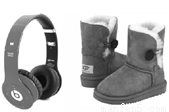0 144181 144189 144195 144199 144205 144207 144211 144217 144219 144225 144231 144235 144237 144241 144247 144249 144255 144259 144261 144265 144267 144271 144273 144275 144276 144277 144279 144280 144281 144283 144285 144289 144291 144295 144297 144301 144307 144309 144315 144319 144321 144325 144331 144337 144339 144345 144349 144351 144357 144361 144367 144375 151629
